The head of the famed Russian space-rocket company Energia that makes the Soyuz spacecraft faces a criminal investigation into alleged abuse of office, Russia's Investigative Committee said on Wednesday.
Vitaly Lopota, president of Energia, is suspected of approving unauthorized loans to an international space consortium, Russia's equivalent of the FBI said in a statement.
 Full Story
Full Story
A goat in Machida, western Tokyo, on November 14, 2013
Scientists in Brazil have genetically modified a goat to produce milk with an enzyme to treat a rare genetic disorder, O Estado de Sao Paulo newspaper reported Tuesday.
 Full Story
Full Story
Italy's Emilia-Romagna region on Tuesday suspended new drilling as it published a report that warned that hydrocarbon exploitation may have acted as a "trigger" in twin earthquakes that killed 26 people in 2012.
The scientific report was commissioned after the quakes amid popular anger over alleged links to drilling activities, particularly an oil field, a gas storage facility and a geothermal energy plant in the area.
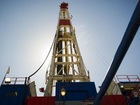 Full Story
Full Story
Chinese President Xi Jinping has urged further integration of air and space defense capabilities, in what experts described Tuesday as a response to the militarization of space by rivals including the United States.
China says its ambitious space program is peaceful, but such claims were first questioned in 2007 when the military used a ground-based missile to destroy one of its own satellites in orbit.
 Full Story
Full Story
A total lunar eclipse, the first since December 2011, will take place Tuesday with the Americas best placed to get a glimpse.
With a first phase -- known as a penumbral eclipse -- kicking off at 0453 GMT, the total lunar eclipse is due to start at 0706 GMT and last until 0824 GMT, the US space agency said.
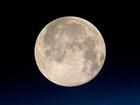 Full Story
Full Story
Just a seventh of scientists in Japan are female, government figures show -- the lowest rate of any developed nation, despite being a record high for the country.
The survey comes amid a high-profile row in Japan that has pitted a young female researcher against the scientific establishment, and after repeated calls for Tokyo to boost female participation in the workforce to help plug a skills gap in the economy.
 Full Story
Full Story
Japan on Monday insisted it had made no decision on whether to resume whaling in the Southern Ocean next year, after a militant environmental group said Tokyo intended to evade an international court ruling.
Tokyo this month said it was "deeply disappointed" that the UN's top court declared the annual Antarctic whaling hunt was a commercial activity disguised as science, but was calling the 2014-15 hunt off.
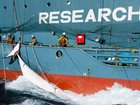 Full Story
Full Story
Cold and dry today, Mars was previously warm and wet but possibly only at intervals, a study published on Sunday suggests.
Scientists have long puzzled over what happened to the water, the precious stuff of life, on the Red Planet.
 Full Story
Full Story
The launch of a SpaceX rocket and its Dragon cargo capsule to the International Space Station will go ahead as scheduled Monday despite a glitch affecting a computer on the station, officials said.
The Falcon 9 rocket and its unmanned capsule Dragon is scheduled to blast off from Cape Canaveral in Florida at 4:58pm (2058 GMT), SpaceX vice president Hans Koenigsmann said.
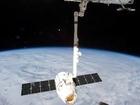 Full Story
Full Story
Fish are losing their survival instinct -- even becoming attracted to the smell of their predators -- as the world's oceans become more acidic because of climate change, new research said Monday.
The study of fish in coral reefs off the coast of Papua New Guinea -- where the waters are naturally acidic -- showed the animals' behavior became riskier.
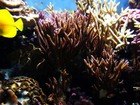 Full Story
Full Story



